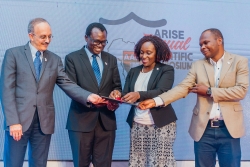
The project aims to address critical gaps in understanding preeclampsia phenotypes and the cost-effectiveness of calcium supplementation in low- and middle-income countries (LMICs) like India and Tanzania. Preeclampsia, a complex disorder, lacks comprehensive characterization in LMICs, where risk factors may differ significantly. Leveraging data from the large calcium supplementation trial, the project seeks to estimate preeclampsia phenotypes, evaluate their association with adverse outcomes, and identify risk factors.
Additionally, the cost-effectiveness of calcium supplementation remains a barrier to implementation in LMICs. By reviewing literature and program data on cost of calcium supplementation, the project aims to provide updated robust cost effectiveness data taking into account the potential non-inferiority of a lower single 500mg dose. This comprehensive analysis will provide policy makers with evidence for decision-making about the viability of calcium supplementation programs in the context of resource constraints. This analysis is particularly of vital importance since a lower dose calcium supplementation has been shown to be non-inferior, potentially reducing costs substantially.
Achievements include protocol development, statistical analysis, manuscript preparation and submission for publication of the cost-effectiveness analysis. For preeclampsia phenotypes, the manuscript is in the final stages and will be submitted for publication.
This project has been implemented in collaborating with esteemed institutions including Harvard T.H. Chan School of Public Health, Ifakara Health Institute (IHI), and Muhimbili University of Health and Allied Sciences (MUHAS). The project's impact will extend beyond academia. It will provide crucial insights for government policymakers in Tanzania and India, aiding in the implementation of national guidelines on calcium supplementation. Moreover, scientific evidence on preeclampsia phenotypes and their associated adverse outcomes will contribute significantly to the broader scientific community's understanding of maternal health in LMICs.
